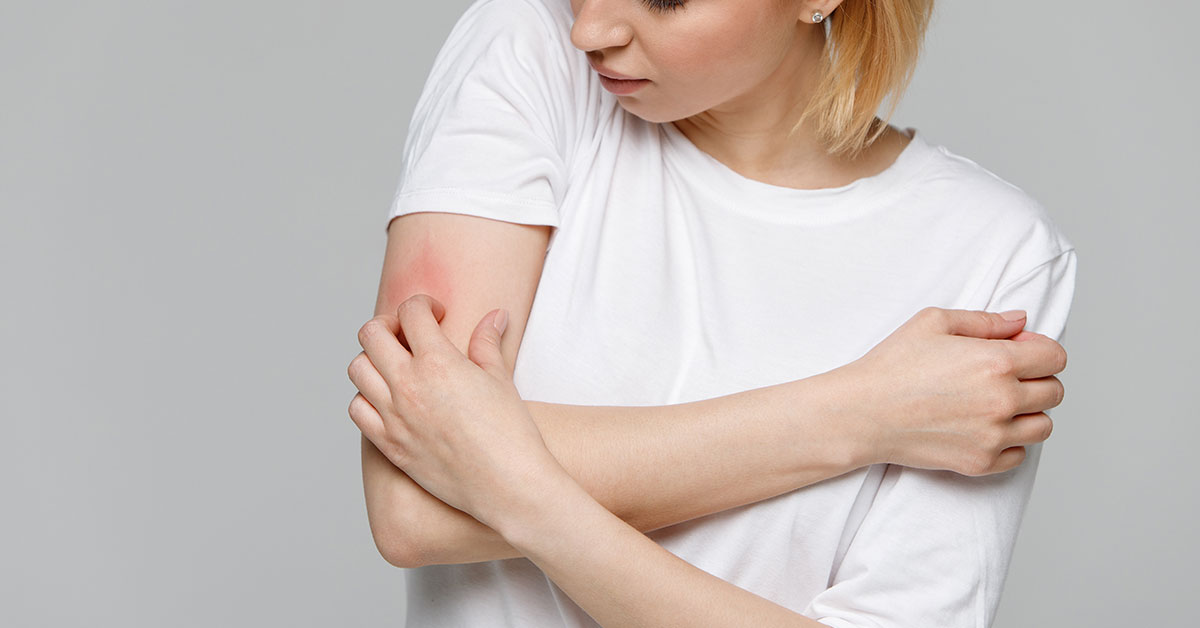
As per a 2009 fragrance allergy survey, up to 30% of the US population experienced discomfort from perfume. According to the poll, perfumes had a negative impact on the health of up to 19% of those who took part. Fragrance allergies are partially caused by approximately 2,500 compounds included in the average perfume or cologne, many of which are not specified.
It might be impossible to entirely eliminate fragrances that trigger allergic reactions. However, here are a few points to be taken into consideration:
Once you have fragrance allergies, your immune system reacts to an element or chemical in the scent that produces the reaction. This signifies that your body recognizes the perfume component as a foreign object. Then, as if it were a bacterial or viral invasion, it triggers an inflammatory response to assist fight off the chemical. This body’s immune response normally takes several days to develop and presents as itching or a rash. These symptoms might linger for weeks before disappearing.
Fragrance allergy, which is considerably more frequent, is an allergic reaction to something that affects your body. This exposure may not always result in widespread immune system response. A smell allergy may cause a rash that fades within a few hours or a little headache. You may also sneeze a few times until your symptoms disappear. This is because, in order to restore to normal, your body responds by eliminating the irritant.

Majority of the fragrance allergies cause an itching response on the body in the form of usually red rashes which may disappear early. Just after a brief exposure, some minor effects might remain for a few weeks.
A mild to moderate symptoms of fragrance allergy may include:
Several other mild to moderate signs of perfume sensitivity are as follows:
Other smell allergy responses are significantly more serious and can occur much faster. Most of these symptoms may necessitate prompt medical intervention. They are, however, relatively uncommon.
Here are some serious emergency symptoms to be aware of:
Swelling of the tongue, lips, or mouth: This type of swelling can be painful and make it difficult to breath, eat, or talk. To lower swelling fast, you may require medical therapy, such as corticosteroid injections.
Anaphylaxis: Anaphylaxis occurs whenever your nostrils’ passages get inflamed and narrow down because your body produces a large amount of a kind of antibody known as IgE. This can make breathing difficult or impossible. If this kind of condition ever occurs, you should rush to the emergency at a hospital.
Most essential, it should entail avoiding the drug that first triggered the condition.
For minor, transient fragrance allergy symptoms, try the following treatments:
Medications. Itching and stuffiness can be relieved with the use of antihistamines. You may obtain them at any store that offers over-the-counter (OTC) drugs or from your doctor with a prescription.
Corticosteroid creams for the skin. Hydrocortisone or other comparable steroid creams can be used to an itching region or a rash.
Bath with colloidal oatmeal. An oatmeal soak can help relieve irritation and inflammation. You may also prepare an oatmeal compress by soaking oats in cold water and wrapping this in thin material.
Lotion or cream with a little moisturizing effect. Use one that does not include any artificial components or compounds that might cause a chain reaction.
Consider using light treatment. You can use blue or red lighting to help eradicate germs that are affecting your skin or to lower the immune system reaction on your skin in order to both relax and restore tissue.
If perfume or smell allergies are interfering with your living and you wish to reduce the severity of your symptoms:
Consider having contact allergen testing performed. Patch tests, which expose you to small quantities of different allergens, can be used by your physician or an allergist to discover your precise allergy triggers. Once you’ve determined what you’re intolerant to, you can prefer to avoid fragrances containing those chemicals.
The first step is to attempt to avoid the material that is triggering your fragrance allergy in the first instance.
Once you have determined what smell you are allergic to or sensitive to, seek that ingredient in any perfume you wish to purchase and so never purchase it again.
If you still want to obtain a similar aroma but want to avoid any of the allergens, try natural, plant-based perfumes.
Choosing a scent with few chemicals might lessen the likelihood of a smell allergy or sensitivity reaction.
However, it is not always possible to prevent contact, especially if you live or interact with individuals who use fragrances for personal or social reasons.
Here are other few ways you may consider minimizing the contact with allergens:
See Also: Ear Allergies, Reactions and Reasons: Causes, Symptoms, and Treatment
Fragrance allergies and hypersensitivity are prevalent and can cause problems. This really is certainly relevant if you have to live or work with individuals who casually spray smell or cologne every other day and you can’t escape them.
However, there are many things you may take to decrease your contact or alleviate your symptoms. Limiting your exposure, seeking therapy, and informing those around you regarding your symptoms will help you cope and ensure that your life is not disrupted.